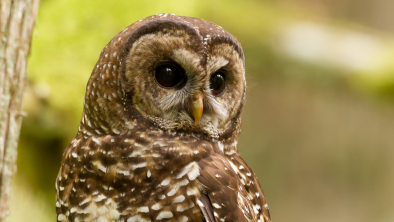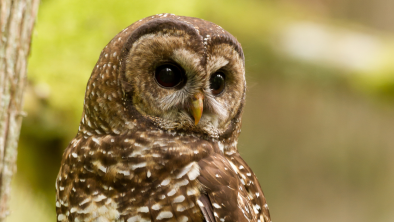Next wolf cull to follow into dens
24 Hrs Vancouver

Despite international public outcry from citizens, environmentalists and scientists alike, the province is preparing for the second year of its wolf cull in an effort to save B.C.’s dwindling mountain caribou population — and it expects more “success” because of the number of wolves collared in the first round.
Although it’s weather dependent, the termination of wolves in the South Peace and South Selkirk areas will likely begin in January again for the duration of winter, according to the Ministry of Forests, Lands and Natural Resource Operations. The program that began last January is expected to continue for four more years.
Not only will collared wolves make it easier for helicopter snipers to shoot wolves, but in the South Peace region, a “fixed-wing track spotter will also be used to make finding wolves easier.” In the South Selkirks, collaring to identify and confirm pack composition and use areas will help target “high-risk” wolves for removal.
B.C. has 98% of the global population of mountain caribou, an endangered species. While the province said it’s taken measures to protect 2.2-million hectares of habitat “these measures alone are not enough to protect mountain caribou,” a ministry spokesperson said.
Ian McAllister, Pacific Wild co-founder, said the province has made it clear that despite overwhelming opposition to the cull — and the Wilderness Committee’s freedom of information request revealing the forest industry was influential in encouraging the province to terminate wolves over saving more forest lands — it intends to move forward.
“I think the issue around that is they’ve increased the amount of wolves collared, people find that it’s really reprehensible to consider these ‘Judas’ wolves are going to be leading these helicopters with snipers to the rest of their families, and extended family.
“It’s such a disgusting thing that we’re committing to these wolves.”
Sadie Parr, with Wolf Awareness, said there is no conclusive evidence that removing the predator will boost the caribou population as their dwindling numbers are coming down to human interference and loss of habitat.
“It’s really inhumane,” she said. “It is ethically unacceptable to kill one species or several species to save another when it’s humans that put caribou in this situation.
“Predator control is not effective unless we’re going to kill wolves forever — they’re going to come back.”
Anne Sherrod, with Valhalla Wilderness Society, said documents show the province intends to wipe out about 80% to 100% of the wolves in those areas and “that’s basically an extermination project.”
“There is unanimous scientific evidence that the main cause of the decline of the mountain caribou is the destruction of old-growth forests through industrial activities,” she said.
Tom Ethier, assistant deputy minister of resource stewardship, was unavailable for an interview.
Photo Credit: Grey wolves (Ronnie MacDonald via Flickr)


